
Ethelmund had planned to come sneaking into the bedroom so as not to wake his wife, but he found her sitting up on the couch with all of the candles lit.
“Gunnilda! You still up! Is that boy keeping you up now?” he asked gleefully.
“You know I think it’s a girl,” she murmured.
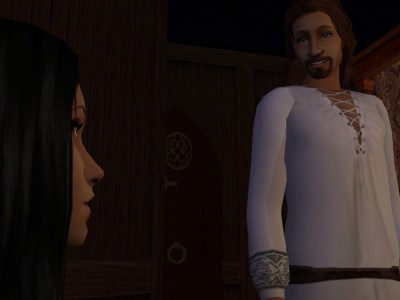
It was a sort of joke between them. He knew she knew he secretly hoped for a daughter: he had three sons alive and his one daughter was about to leave home. He liked to call the baby a boy, merely for the delight of being told it was really a girl. He thought Gunnilda said it because she knew he liked it, and that pleased him more than anything.
He leaned over her and patted the slight bump that stretched the soft flannel of her nightgown over her belly.
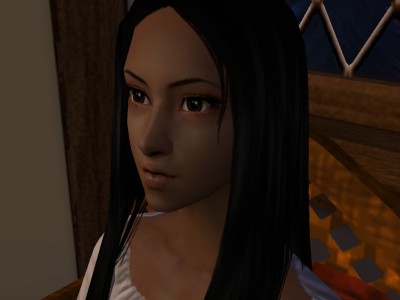
“Don’t wake her,” she said.
“What? I thought he was keeping you awake.”
“No, no. I was waiting up for you.”
“For me?” he smiled.
“Yes,” she whispered.
Ethelmund sat beside her on the couch, too overcome at first even to touch her.
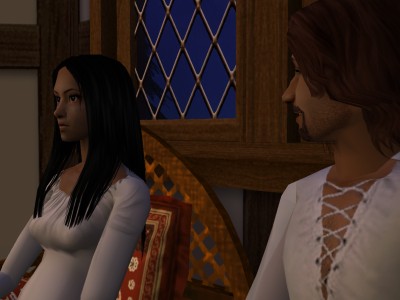
His wife was friendly and pleasant enough with him during the day, but at night he found her shut up inside herself like a tortoise in its shell. Though her shell was only her body, he could touch her body however he liked and turn her body however he pleased, but he could never get to Gunnilda inside of it.
He suspected she tried to arrange her schedule so that they would not meet awake in the bedroom, and so he was surprised to find her here, deliberately meeting him. It was enough to make him uneasy.
“For me?” he repeated so that he could hear her say it again.
“Yes.”
Her little mouth trembled, and it was all he could do to prevent himself from leaning closer and kissing it. She might have allowed him to kiss her mouth, but he was not certain he would be able to stop there.

He did not intend to touch her again until at least forty days had passed after the birth of her baby. Afterwards, he did not know whether he would have the heart to do it. He did not want to hurt the baby, of course, but most of all he did not want to hurt her.
Sometimes he could not help it. It was vile of him, but he did not know what to do with this woman who, if he was gentle, would only lie there with her stoic patience, as if he were only something to be endured.
If he hurt her, or frightened her, or made her angry, then at least she would come to life. At least then he could hear her panting in his ears and feel her clawing at his back. Sometimes he even thought she liked it – but afterwards, when the guilt fell over him like some hangover of the heart, he would know that it was only his own vain attempt to justify his barbarity.
He did not think that he would touch her again.

“Is there something you wanted to talk about?” he asked. It was the only thing that made sense.
“Yes,” she squeaked.
“Now, Gunnie, is something wrong?” he asked gently. The candle was behind her, but it appeared to him that her eyes had been crying.
“Yes.”
“What is it?” He reached out a hesitant arm to see whether she would allow him to lay it over her shoulder.
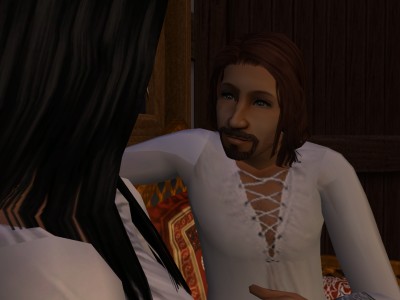
Instead of ducking her head, she turned and lifted her arms to him. He did not know how he dared, but he pulled her close, and she came, it seemed, gratefully. It seemed that she could not get close enough, for she lifted her legs and laid them across his lap.
Ethelmund scarcely dared move. He had not held his wife on his lap in many months, and she had never, never come of her own. He was so happy that he began to feel certain she was about to break his heart: only a tragedy could have sent her fleeing to him.
“Is it something about the baby?” he prompted when she would not speak.
“No, no,” she mumbled. “She’s fine.”
“What then? Something bad? I think you were crying.”
She nodded, and he dared to touch her face with the tips of his callused fingers. Her cheeks were dry, but she let him touch them all the same.
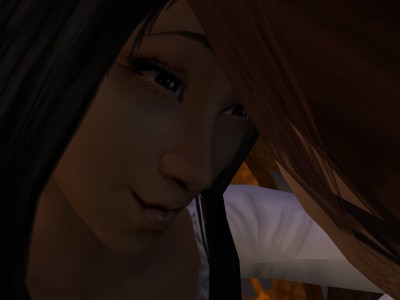
Her body was fully-grown and ripe and round, but she still had the delicate, doe-eyed face of a child. At times the face seemed not to fit the care-worn woman who wore it, who was so wryly wise, but at that moment it was hers. And it was already heartbreaking: such a face was made to be covered in kisses, to be pressed against one’s neck, to be laid sleeping upon one’s chest all the night through…
“It’s about Wynna.” Her voice was strangled and strange. “She’s… expecting…”
“Expecting what?” he asked when she did not finish. He was immediately made to feel rather stupid.
“A baby!” she whimpered, and then she hid her face in his neck as if she was ashamed.
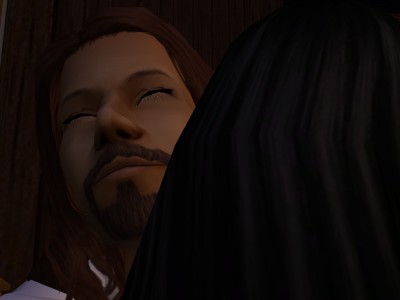
Ethelmund was too stunned by this behavior to fully grasp what she was saying, and too stunned by what she had said to appreciate the silkiness of her cheek against his neck, though he had often imagined it.
Wynna was expecting a baby. But that meant that Wynna had–
“Who did it?” he gasped.
“Well – Anson. Of course!”
“Anson! Of course.”
He felt his anger rising up in him like a savage bird, flailing its wings against the cage of his ribs on its way to freedom.
But meanwhile he had this little woman perched all unexpected on his lap like a butterfly. He feared that if he moved too suddenly he would injure her, and if he so much as breathed she might fly away again.
“What shall we do?” she whimpered, and she looked up at him with the helpless trust of a child.

“Well…” He tried to think practically. “Can we send her to one of your sisters?”
“What? Why?”
“Until after the baby’s born. So no one will know.”
“But…”
“And then… I don’t know…”
“But, Ethelmund, I don’t know if you know how my sisters live.”
“Oh, I think I have some idea! And I think Wynna ought to get some idea, too, so she gets a taste of what kind of life people like Anson’s family lead!”
“But she wants to marry him, she said.”
“Marry him! Marry that…”
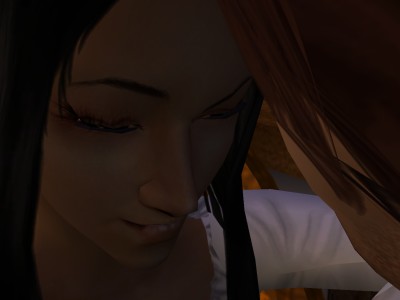
It was only his heart beating against his ribs, but it was an angry heart. He had made plans for Wynna that had pleased him very much. And he had taken her into his house, and made her part of his family, and now she would bring shame upon them both.
She was not worthy of them. He wanted to send her away, back to the sort of places and people where such things were winked at. If it was the life she wanted then, by God, she would have it – so he would say.
He wanted to rise up and roar. He wanted to break things and smash things. In particular he wanted to break and smash that insolent young groom’s pretty face.
But meanwhile there was this trembling woman on his lap, and he was suddenly afraid that even the latent strength of his angry arms was enough to injure her.
“She’s so scared!” Gunnilda whispered.
“Gunnilda…”
“And I know just how she feels! People are so cruel!” she sobbed.
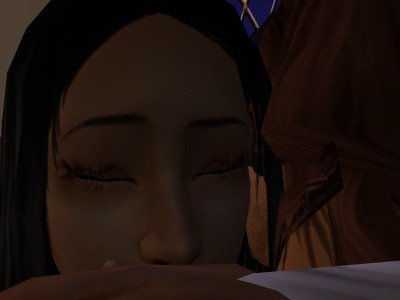
Then he understood what she was doing on his lap. She had indeed fled to him. She needed his protection for herself and for her daughter. The proud, independent, wryly wise woman she was had come humbly to him. It was not an act to gain his sympathy: the shivering and the clinging was real, and so were the tears she tried to gulp down but which came wet against his neck all the same. She needed the protection of his angry arms.
He had often wondered why she had married him: she had never seemed to quite admit to herself or to anyone else that she truly needed a man for anything. He knew she thought she could have run her farm all alone if she had been allowed. But this was a thing beyond her strength. Perhaps she had always known that such a thing might exist. Perhaps she had simply wanted the security of knowing that his strength was there in case of need. Or perhaps…
No, he did not know why she had married him. Perhaps he never would.
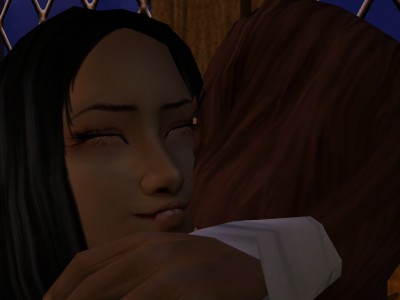
The punishment would not be his to deliver. The “people” of which she spoke would provide enough. Nor could he even permit himself to punish Anson, whom he needed to protect Wynna. He would have to protect Gunnilda and Wynna first, his house and his family second, and all his anger would have to be turned outwards against those who would harm them.
“When’s the baby coming?” he asked.
“June, she thinks.”
“She’ll have to be married during Advent if she doesn’t want to be showing.”
“It can’t be helped,” Gunnilda said. “But people will talk.”
“Let them talk, and see whether they will dare talk to me.”
She shuddered against him in gratitude. “But what if he won’t marry her?” she asked, merely for the delight of being reassured.
“He will marry her. I shall take care of that. Don’t you worry about anything.”







oh yes, he WILL marry her. Tell Ethelmund I'll help him convince Anson, if the angry steph-father isn't enought... Good old aunty Yicke might help...